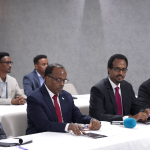Mogadishu, (SONNA) – On International Day of Zero Tolerance for FGM, IfrahFoundation joined the Ministry of Family, and Human Rights Development (MoFHRD), UNICEF, UNFPA, and other key partners, including activists, religious leaders, and survivors, to reaffirm collective efforts in ending Female Genital Mutilation (FGM) in Somalia. Ifrah Foundationremains deeply committed to eliminating FGM and ensuring the protection and rights of women and girls across the country.
Survivors Share Heartbreaking Testimonies
During the event, Ifrah Ahmed, founder of Ifrah Foundation, moderated a powerful panel discussion featuring two FGM survivors, a religious leader, a nurse, and a journalist.
The survivors shared their painful experiences, revealing how cultural and religious misconceptions shaped their understanding of FGM.
“We grew up believing that FGM was necessary for a girl’s dignity and marriage prospects. We were told that an uncircumcised girl would be rejected by society and even face divorce,” they explained.
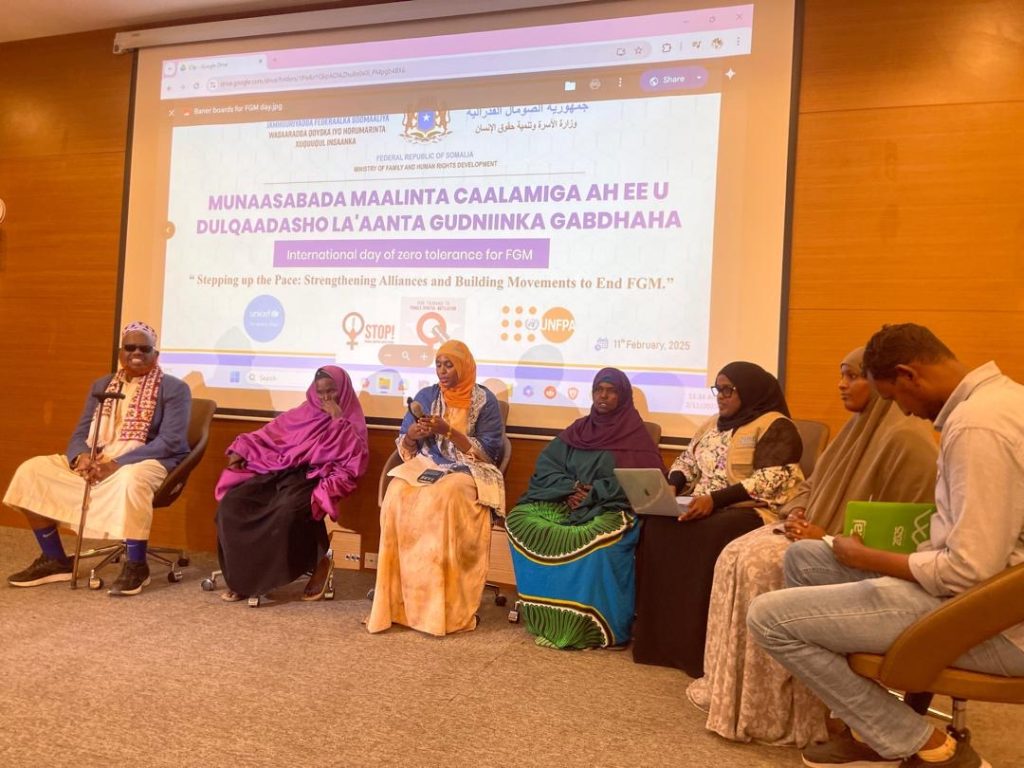
They described the brutal procedure they underwent as children at the hands of traditional birth attendants (TBAs):
“It was excruciating. We had no anesthesia, bled for days without medical care, and were bedridden for over three months. Urination became unbearable. But we survived.”
As they grew older, the consequences worsened:
“Menstruation was painful, and intimacy in marriage was filled with discomfort and anxiety. Childbirth was the most traumatic—our labor lasted for days, putting both mother and baby at risk.”
Religious and Medical Experts Condemn FGM
A prominent religious leader emphasized that FGM has no basis in Islam, stating:
“FGM has no place in our religion. Islam forbids harming any human being at any stage of life. This practice must end.”
A nurse further explained the severe health complications caused by FGM, including prolonged labor, childbirth complications, and lifelong physical and psychological trauma:
“Many women and girls suffer serious medical issues because of FGM. It is time we end this harmful practice for good,” she urged.
Ifrah Ahmed Calls for Urgent Action
Speaking at the event, Ifrah Ahmed strongly urged for accelerated efforts to end FGM, highlighting the success of the Dear Daughter Campaign, which has reached over 100,000 people who pledged to protect girls from FGM.
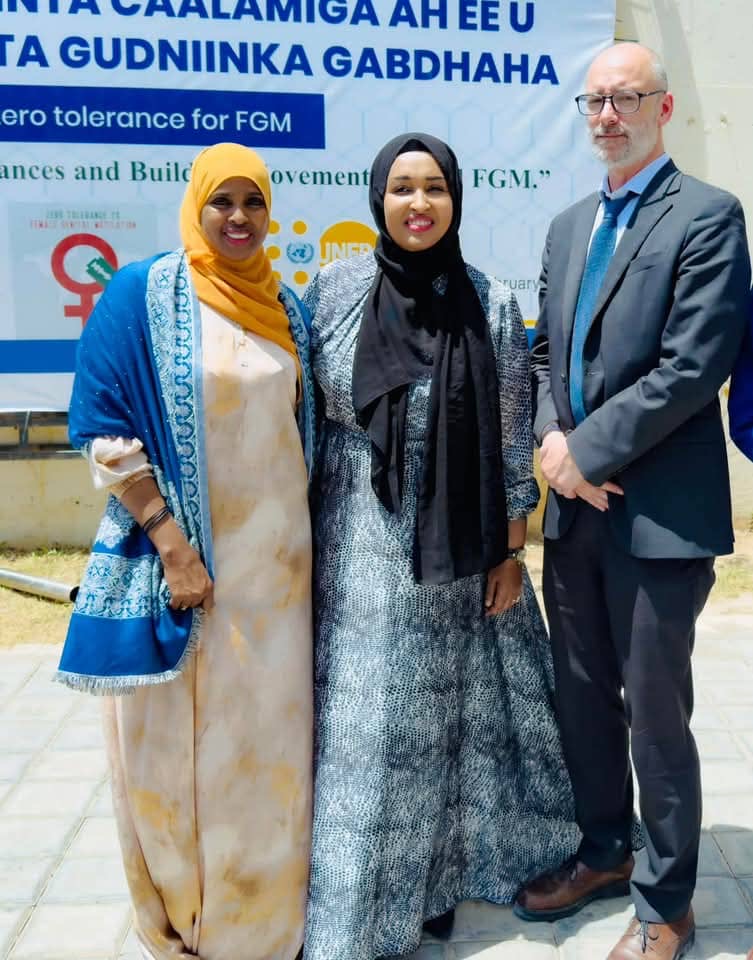
“We need everyone to take action—parents, leaders, and policymakers. I encourage all of you to join this movement and stand up for Somali girls.”
She also called on the Ministry of Women, Family, and Human Rights Development and the Somali Parliament to pass a national law banning FGM.
“Legal action is critical. We must ensure girls are protected under the law, and those who continue this harmful practice are held accountable.”
International Community Stands in Support
George Conway, Deputy Special Representative of the Secretary-General, Resident Coordinator, and Humanitarian Coordinator (DRSG/RC/HC), reaffirmed the international community’s support for Somalia’s movement against FGM.
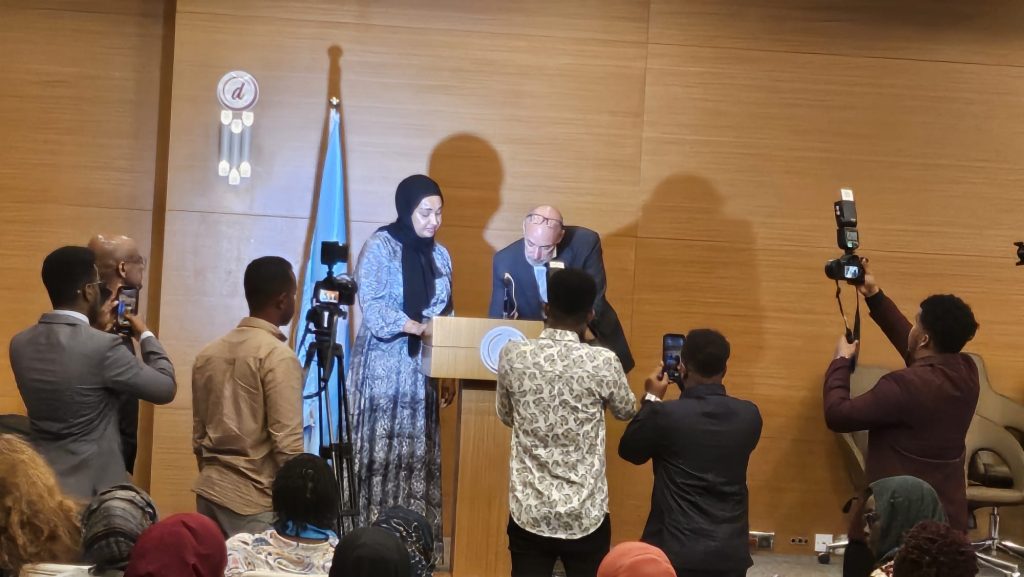
“We are here to support Somali citizens’ desire for change,” he stated. “We need to show solidarity with survivors and the violence faced by Somali women, including child and forced marriage. We are here to support women and girls to achieve the change that the people want.”
Government’s Commitment to Ending FGM
H.E. Amb. Khadija Mohamed Al-Makhzoumi, Minister of Women, Family, and Human Rights Development, delivered a strong message on the urgent need to end FGM.
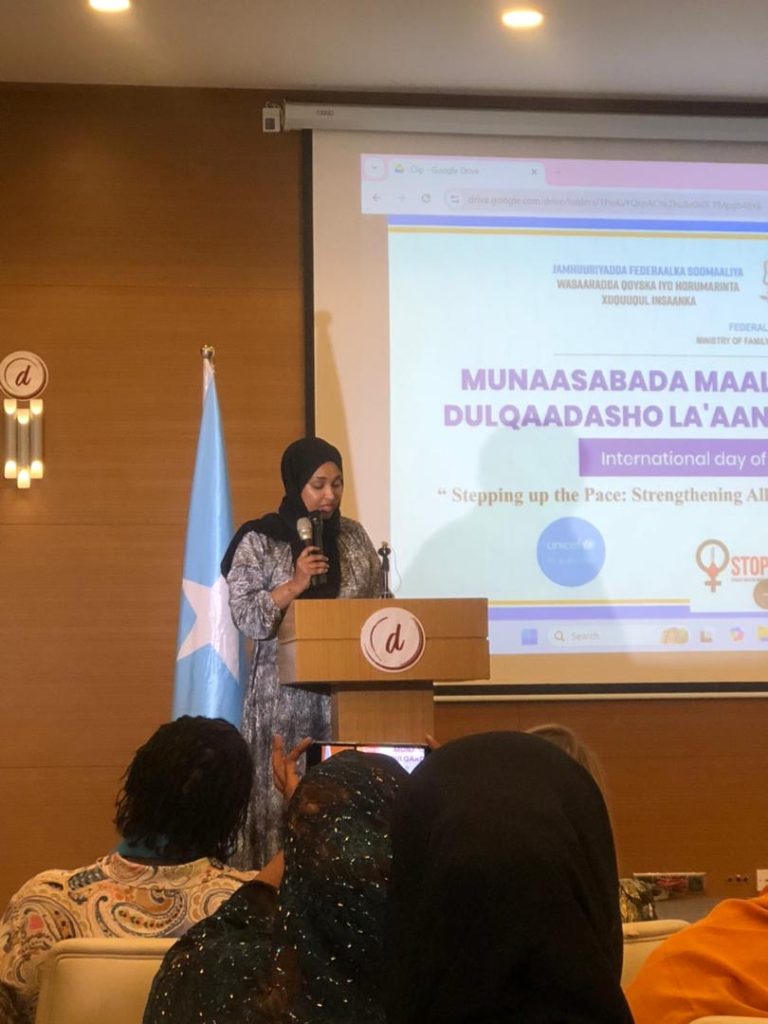
“We have overwhelming evidence proving the devastating health effects of FGM. Today, we reaffirm our commitment to eliminating this harmful practice once and for all.”
She further emphasized the need for legislative action and public support, urging all sectors of society to push for a ban on FGM:
“We must unite—teachers, youth, religious leaders, and families—to support the passage of a law that will protect our daughters.”
A Call to Action
The event concluded with a unified call to accelerate efforts to end FGM in Somalia. Participants reaffirmed their commitment to raising awareness, challenging harmful cultural beliefs, and advocating for a legal ban on FGM.
The fight against FGM continues, but with growing momentum and collective action, a future free from FGM for Somali girls is within reach.


